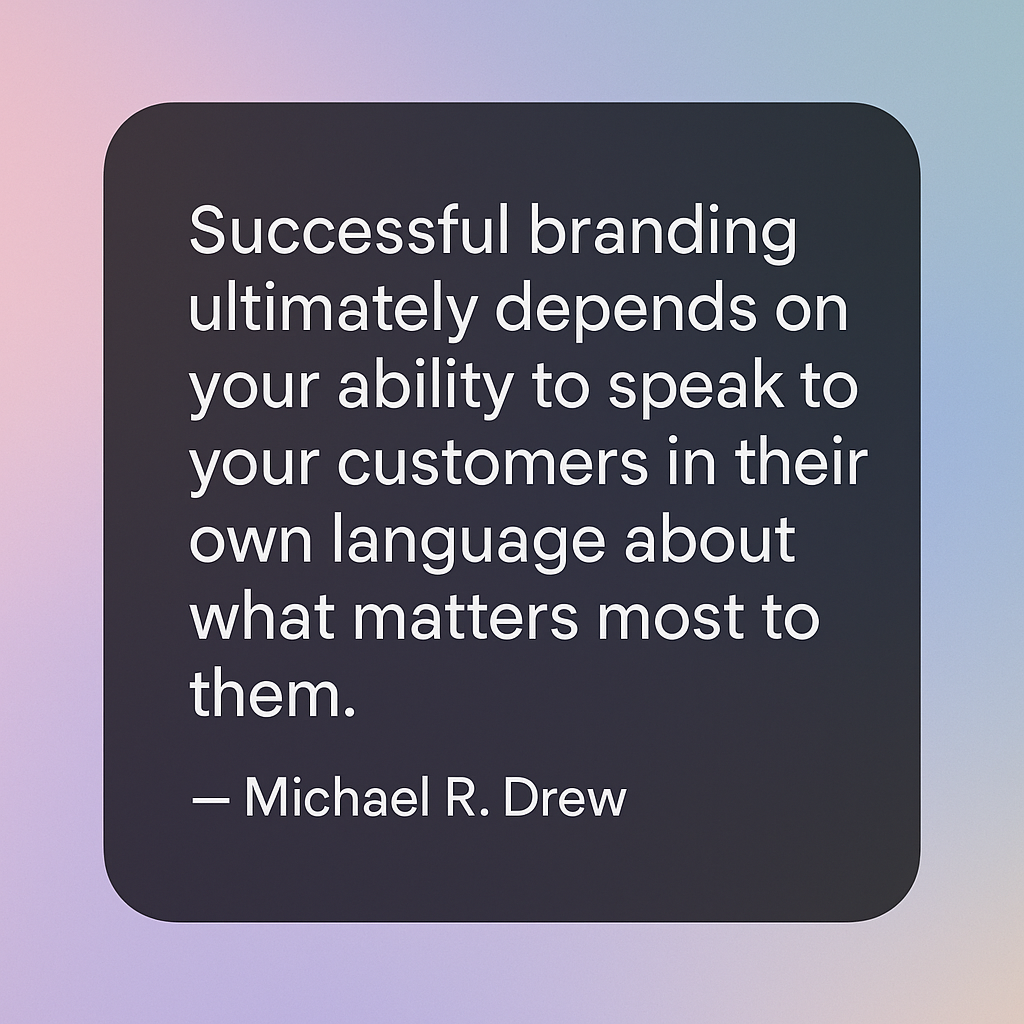
Branding shapes more than just your logo or business card. It is the reason people remember you even after reviewing dozens of other professionals. Here is the surprise. Research shows people form a first impression of your brand in just milliseconds. So while you might focus on fine tuning your services, the real difference maker, and why branding matters, is how you craft those early moments. That snap judgment can take you from unknown to unforgettable before you even say a word.
Table of Contents
- What Is Branding And Its Core Elements?
- Why Branding Matters For Engagement And Trust
- How Branding Influences Customer Perception
- The Role Of Branding In Competitive Differentiation
- Key Concepts In Effective Branding Strategy
Quick Summary
| Takeaway | Explanation |
|---|---|
| Branding is a strategic identity | It encompasses your professional essence, values, and promise, beyond just logos or visuals. |
| Trust enhances client engagement | Authentic branding builds emotional connections, fostering reliable and trusting professional relationships. |
| Effective differentiation attracts clients | Crafting a unique brand narrative helps you stand out in a competitive market and appeal to your target audience. |
| Consistency shapes customer perception | Uniformity in visuals and messaging influences how clients interpret your brand and assess your expertise. |
| Branding requires strategic intent | Developing a thoughtful brand strategy integrates your narrative with client needs, enhancing authenticity and appeal. |
What is Branding and Its Core Elements?
Branding transcends a simple logo or visual design. It represents the comprehensive strategic approach of crafting a unique identity that communicates your professional essence, values, and promise to your target audience. To understand why branding matters, you need to see it as a powerful communication tool that differentiates you in a competitive marketplace and leaves a lasting impression.
The Fundamental Definition of Branding
At its core, branding is about creating a distinctive and memorable impression that connects emotionally with your audience. According to Harvard Business Review, branding involves developing a cohesive narrative that communicates who you are, what you stand for, and how you uniquely solve problems for your clients.
Key components of effective branding include:
- A clear and compelling value proposition
- Consistent visual and messaging elements
- An authentic representation of your professional identity
- Strategic positioning that resonates with your target market
Building Your Brand Identity
Successful branding requires thoughtful development of multiple interconnected elements. These include your visual identity (logo, color palette, typography), verbal identity (tone of voice, messaging), and experiential identity (how clients feel when interacting with your services).
Your brand should communicate professionalism, reliability, and the unique value you bring. This means carefully crafting every touchpoint to reflect your core principles and expertise. Understanding why branding matters ensures that your website, social media, client communications, and service delivery all contribute to a consistent and memorable perception.
Below is a table organizing the key components of effective branding and their explanations to clarify what each element contributes to a strong brand identity.
| Branding Component | Explanation |
|---|---|
| Value Proposition | A clear statement that communicates your unique professional benefit to clients. |
| Visual Elements | Consistent use of logo, color palette, and typography to establish brand recognition. |
| Messaging Elements | Cohesive and consistent verbal communication that expresses your tone and brand story. |
| Authentic Identity Representation | Honest reflection of your values and professional strengths to foster credibility. |
| Strategic Positioning | Deliberate brand placement to align with and appeal to your ideal market segment. |
| Client Experience | The feeling and impression clients receive at every touchpoint with your services. |
| Emotional Connection | Building relationships through brand storytelling that resonates with your audience. |
Professional service providers like coaches, consultants, and freelancers must recognize that their personal brand is often their most significant marketing asset. Understanding why branding matters helps you see that by investing time in developing a clear, authentic brand strategy, you shift from being just another provider to becoming a distinctive, memorable professional that clients trust and seek out.
Why Branding Matters for Engagement and Trust
Engagement and trust are the cornerstones of successful professional relationships. Your brand serves as the primary mechanism through which potential clients connect with your professional identity, showing why branding matters in shaping the critical perceptions that determine whether they choose to work with you.
The Psychology of Trust in Branding
Trust is not merely a transactional element but an emotional connection that develops through consistent, authentic representation. According to research from the Journal of Marketing Theory and Practice, brands create engagement by delivering consistent experiences that signal reliability and competence.
Key psychological triggers that build trust through branding include:
- Transparent communication about your professional capabilities
- Consistent visual and messaging representations
- Demonstrating expertise through valuable content
- Showing genuine understanding of client challenges
Creating Meaningful Professional Connections
Branding goes beyond superficial aesthetics. It is a strategic communication tool that helps you articulate your unique value proposition and establish credibility. Recognizing why branding matters means understanding that clients are more likely to engage with professionals who present a clear, coherent brand narrative that speaks directly to their needs.
This table compares the key psychological triggers that build client trust through branding and how each factor influences engagement and professional relationships.
| Psychological Trigger | Impact on Trust and Engagement |
|---|---|
| Transparent Communication | Sets clear expectations about your capabilities and builds confidence. |
| Consistent Visual/Messaging | Reinforces brand reliability and helps clients recognize and remember your brand. |
| Demonstrated Expertise | Establishes your authority and signals your skills and experience to clients. |
| Understanding Client Challenges | Shows empathy and cultivates a deeper client connection beyond transactional needs. |
| Valuable Content | Proves ongoing value and nurtures long-term relationships through helpful insights. |
Professional service providers like coaches, consultants, and freelancers can leverage branding to create deeper, more meaningful connections. Learn more about building strategic brand partnerships that can amplify your professional reach and trustworthiness.
By investing in a thoughtful, authentic brand strategy, you transform from being a generic service provider to becoming a trusted partner who understands and addresses client needs with precision and empathy. Understanding why branding matters shows how your brand becomes the bridge that connects your professional expertise with your audience’s expectations, creating a powerful foundation for long term engagement and success.
How Branding Influences Customer Perception
Customer perception represents the complex psychological process through which individuals interpret and form opinions about your professional identity. Understanding why branding matters shows how your brand serves as the primary lens through which potential clients evaluate your credibility, expertise, and potential value.
The Cognitive Mechanics of Brand Perception
Perception is not passive but an active interpretative process where clients construct meaning based on multiple sensory and emotional inputs. According to Nielsen Norman Group, people form initial impressions within milliseconds, making every visual and communication element critical in shaping their understanding.
Key factors influencing customer perception include:
- Visual consistency and aesthetic appeal
- Clarity of professional messaging
- Demonstrated expertise and credentials
- Emotional resonance with your brand narrative
Transforming Perceptions Through Strategic Branding
Effective branding goes beyond surface level aesthetics. It strategically curates how clients mentally categorize and value your professional services. Explore our guide on building strategic professional partnerships to understand how targeted branding can reshape client perspectives.
Professional service providers must recognize that perception is multidimensional. Understanding why branding matters means realizing that clients do not just see what you present but interpret it through their existing mental frameworks, past experiences, and emotional expectations. That is why branding matters as your brand becomes a sophisticated communication tool that strategically influences how potential clients understand your unique professional value proposition.
By thoughtfully designing every brand touchpoint, you can proactively guide client perceptions, transforming casual observers into engaged, interested potential collaborators who see you as a distinctive and compelling professional solution.
The Role of Branding in Competitive Differentiation
In a saturated marketplace, branding emerges as your most powerful tool for standing out and attracting ideal clients. Understanding why branding matters shows that competitive differentiation is not about being louder or more aggressive, but about crafting a unique professional identity that resonates deeply with your target audience.
Understanding Strategic Differentiation
Competitive differentiation through branding requires a nuanced approach that goes beyond surface level distinctions. According to International Review of Management and Marketing, effective branding serves as a critical mechanism for commanding premium positioning and establishing organizational distinctiveness.
Key elements of strategic differentiation include:
- Developing a compelling and authentic professional narrative
- Highlighting unique methodological approaches
- Demonstrating specialized expertise
- Creating memorable visual and communication signatures
Transforming Competitive Advantages
Successful professionals understand that differentiation is about communicating value in ways that highlight why branding matters and make potential clients see you as the optimal solution.
 Your brand becomes a strategic asset that communicates why you are uniquely positioned to solve specific challenges.
Your brand becomes a strategic asset that communicates why you are uniquely positioned to solve specific challenges.
Learn more about strategic professional partnerships that can amplify your distinctive professional positioning.
Professional service providers like coaches, consultants, and freelancers must view their brand as a sophisticated communication platform. Understanding why branding matters means thoughtfully articulating what makes your approach unique, and that is why branding matters when you transform from being a generic service provider to becoming a sought after specialist who offers distinctive, irreplaceable value to your clients.
Key Concepts in Effective Branding Strategy
Branding strategy represents a deliberate, comprehensive framework that transforms your professional identity from a generic service offering into a powerful, memorable experience. Understanding the core strategic elements enables you to craft a brand that resonates authentically with your target audience.
Foundational Branding Elements
According to research from the Marketing Strategy Journal, effective branding strategies are built on several interconnected conceptual pillars that guide professional positioning and perception.
Critical strategic concepts include:
- Brand positioning that clearly defines your unique professional value
- Consistent visual and communication frameworks
- Alignment between professional capabilities and client expectations
- Emotional storytelling that connects beyond transactional interactions
Developing Strategic Brand Intelligence
Successful branding transcends superficial design elements. It requires a sophisticated understanding of how your professional narrative intersects with client needs. Explore our guide on crafting a powerful brand messaging strategy to understand nuanced communication approaches.
Professional service providers must view their brand as a dynamic, evolving strategic asset. By integrating intellectual depth, emotional intelligence, and strategic communication, you transform your professional identity from a mere service description into a compelling, differentiated experience that attracts and retains ideal clients.

The most effective branding strategies are those that balance strategic intentionality with authentic self expression, creating a professional brand that feels both purposeful and genuinely human.
Transform Your Personal Brand Into Lasting Business Growth
You have learned how a strong brand builds trust, drives engagement, and shapes customer perception. Still, standing out and managing every detail can feel overwhelming, especially for solopreneurs and freelancers with limited time and resources. The article covers your need for a clear value proposition, consistent messaging, and an authentic strategy that wins over clients. But piecing these elements together on your own is often the biggest hurdle.

Imagine having an AI-powered platform that acts as your co-founder so you never have to choose between creating a professional brand and running your business efficiently. Fluum brings together branded website templates, seamless booking and payments, and integrated marketing tools, all designed for solo service providers. You benefit from business guides and community, letting you focus on your expertise while your brand presence grows stronger every day. Ready to launch a brand that delivers trust and long-term clients? See how easy it can be to elevate your brand and systems with Fluum now.
Frequently Asked Questions
What is branding and why is it important?
Branding is the process of creating a unique identity that conveys your values, essence, and the promise you make to your audience. It’s important because it differentiates you in a competitive market and serves as a powerful communication tool that fosters trust and engagement.
How can effective branding influence customer perception?
Effective branding shapes how customers perceive your professional identity by providing clarity, consistency, and emotional resonance. A strong brand helps potential clients evaluate your credibility and expertise quickly, impacting their decision-making process.
What are the core elements of a successful branding strategy?
A successful branding strategy includes a clear value proposition, consistent visual and messaging elements, an authentic representation of your professional identity, and strategic positioning that resonates with your target market.
How does branding help in creating trust with clients?
Branding fosters trust by promoting transparent communication about your capabilities, delivering consistent experiences, showcasing your expertise, and demonstrating genuine understanding of client challenges. This connection builds emotional ties and encourages engagement.



